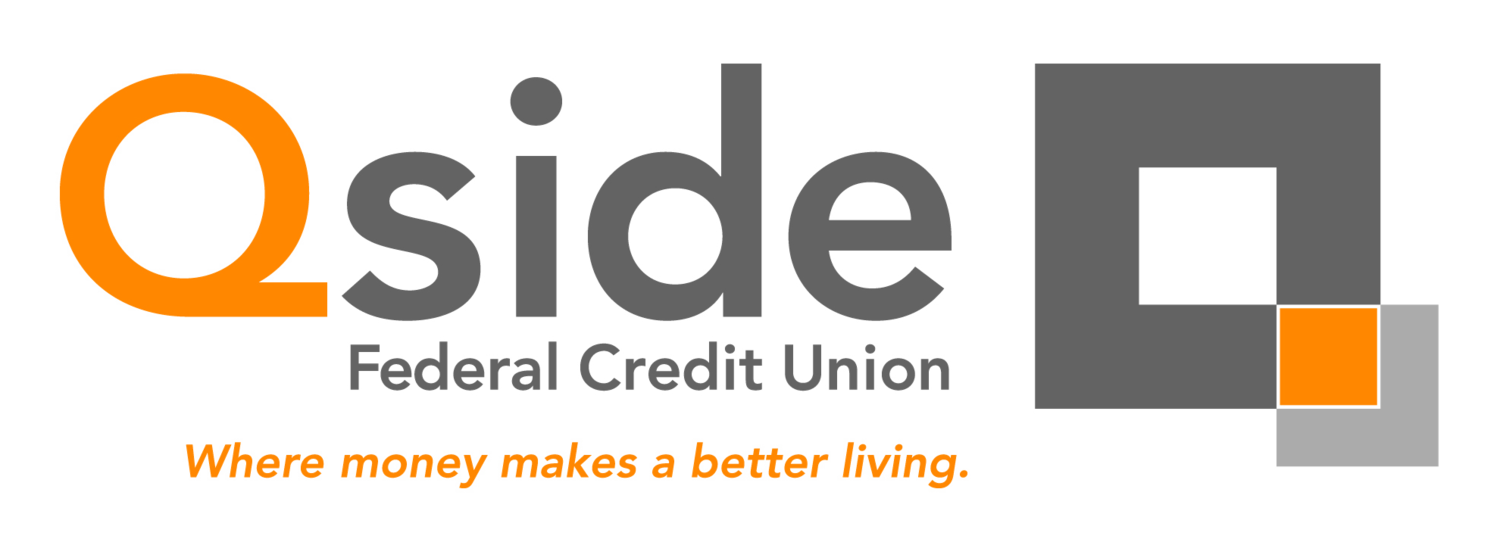FRAUD PREVENTION
Tips On How To Protect Yourself:
Review account statements regularly to ensure all charges are correct. If your statement is late, contact the credit union right away to make us aware and find out why.
Never provide your password over the phone or in response to any unsolicited requests.
Do not reply to suspicious emails or respond by clicking on a link within the email message. Qside FCU will never ask you to provide any kind of confidential or financial details via an email request.
Treat these kinds of emails with suspicion. Never provide your personal information in response to an unsolicited request, whether it is over the phone or through the internet. Emails and internet pages created by phishers may look exactly like the real thing. They may even have a fake padlock icon that is used to denote a secure site. Do not provide any personal or financial information as Qside FCU will not request information in this manner.
For more tips, scroll down.
Protect Yourself from Identity Theft
Qside Federal Credit Union is committed to helping you protect your personal information, accounts and finances from identity theft and scams. Although online banking with Qside is safe and secure, it’s still important to be cautious with your personal information and to protect it from fraud predators, because in today’s electronic age, criminals have more means to acquire individuals’ personal information than ever before.
Awareness of identity theft and other scams will help you keep your money safe. Read on to learn more about identity theft, scams and the precautions you can take to prevent fraud from occurring.
Identity Theft
Identity theft occurs when your personal identification information is obtained and used by an imposter to access your financial accounts, open new financial accounts under your name, or otherwise acquire similar benefits using your identity.
Helpful links:
www.ftc.gov/bcp/edu/microsites/idtheft/
www.onguardonline.gov
Phishing, Vishing and Smishing Scams
Phishing scams are email scams that attempt to acquire your personal information for fraudulent purposes through email communications. These emails, which appear to be from known and trusted entities (such as your credit union, online payment processors, auction sites or social websites) ask you to confirm or provide personal information by clicking on a provided link. This link then directs you to a fake website that also appears to be from the same trusted entity. Once this information is acquired, criminals can use the provided information to access your financial accounts or open new financial accounts under your name.
Vishing and Smishing are scams very similar to phishing, however these scams are carried out using telephone or text message communications, respectively.
Fake Check Scams
The format of fake check scams can vary, but the most defining characteristic of this type of scam involves a stranger proposing to send you a check or money order. These schemes can entail phony business deals, overpaying you for goods or services, real estate rental schemes, or lottery or sweepstake offers. Oftentimes the stranger will claim to be in another country where it’s too difficult to handle a transaction any other way than check, money order or wire transfer. The form of payment they send you turns out to be fraudulent, but by the time you realize this, it's too late -- they have already received their end of the deal only to leave you with a worthless, fraudulent piece of paper that you cannot deposit or cash. In fact, in many instances, the fake payments are so realistic that even bank tellers are fooled and will proceed to deposit or cash the check, only to leave you responsible for repaying the bank in the amount withdrawn against the bad check.
Helpful links:
https://fraud.org/fake-check-scams/
Tips to Avoid Identity Theft and Scams
Never provide your account numbers, PINs or other confidential information by phone or e-mail unless you initiated the contact and you’re sure know who are speaking with. Remember, Qside will never contact you and ask for your account number or PIN by phone, e-mail or fax.
Sign up for Qside’s free E-Statements and cancel paper statements. This reduces the amount of your personal information that’s documented in print, therefore limiting your exposure to identity theft. If you absolutely must receive paper statements, shred them before discarding.
Sign up for Qside’s electronic bill pay to limit your exposure to identity theft.
Shred any documents containing personal and financial information, including pre-screened credit card offers sent in the mail (to opt out of these, call 888-567-8688).
Do not write down passwords or PINs and try to change them periodically.
Do not carry your social security card in your wallet and do not have your social security number printed on your checks.
Order your free credit report once a year at www.annualcreditreport.com to monitor activity and check for errors or fraudulent accounts.
To report suspected phishing e-mails, contact: reportphishing@antiphishing.com


